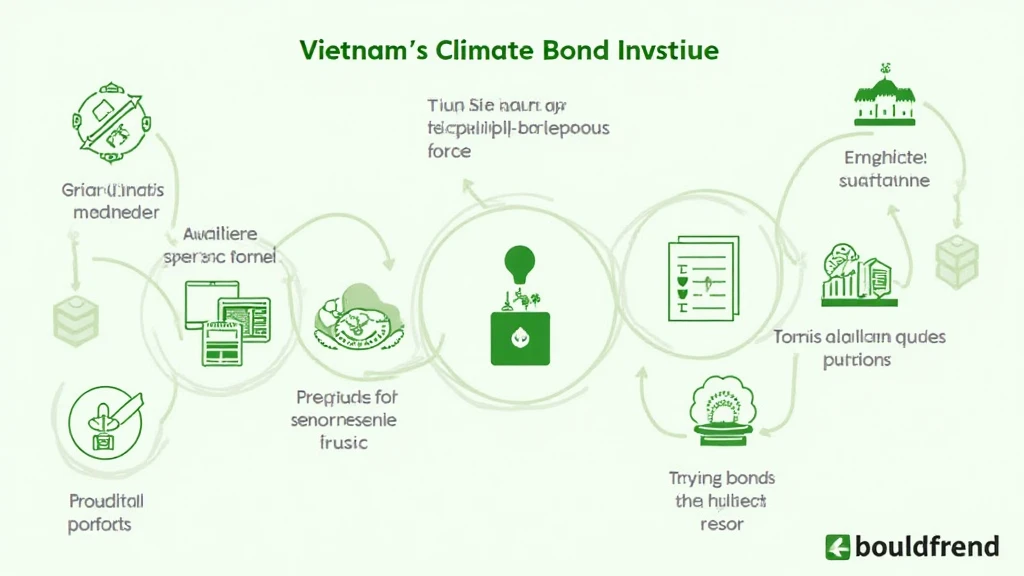Introduction: The Need for Sustainable Initiatives
In recent years, climate change has posed an increasing threat globally. In 2022 alone, the economic losses from climate-related disasters hit $336 billion, which underscores the urgent need for sustainable solutions. Vietnam, a country particularly vulnerable to climate impacts, is at the forefront of adopting innovative financial instruments to combat this issue.
With its rapidly growing economy, the Southeast Asian nation is exploring climate bond initiatives to fund its climate adaptation and mitigation strategies. These initiatives aim to create a substantial impact on Vietnam’s financial landscape while addressing pressing environmental concerns.
Understanding Climate Bonds
At the core, climate bonds are fixed-income instruments specifically aimed at funding projects that yield positive environmental impacts. They tend to follow standards set by various international organizations. For example, the Climate Bonds Initiative outlines the taxonomy needed to qualify for labeling as a climate bond.

In simple terms, think of climate bonds like a collaborative effort to build a green bank vault for our future. Just as vaults protect valuables, these bonds are designed to safeguard our planet by funding sustainable projects.
Vietnam’s Approach to Climate Bonds
Vietnam’s government has recognized the potential of climate bonds in transitioning to a sustainable economy. According to the Ministry of Finance, as of 2023, Vietnam aims to emit 30% less carbon dioxide by 2030 compared to 2010 levels. To reach this target, it has initiated a series of climate bond projects focusing on renewable energy, sustainable agriculture, and infrastructure development.
- Renewable Energy Projects: With major investments in wind and solar power, Vietnam aims to increase its clean energy output from 29% to 45% by 2030.
- Sustainable Agriculture: Various programs aim at enhancing agricultural resilience to climate change while improving food security.
- Infrastructure Development: Adapting coastal communities with climate-resilient infrastructure to protect against rising sea levels.
The Role of the Private Sector
As Vietnam’s climate initiatives expand, the private sector has increasingly engaged in financing these projects. For instance, Green Credit Corporation has played a crucial role in issuing climate bonds specifically tailored for environmentally responsible investments.
Here’s the catch—private companies can benefit from tax incentives offered on these climate bonds, making it a win-win situation for both the environment and the economy.
International Collaborations and Support
The Vietnamese government is actively collaborating with international organizations to enhance its climate bond framework. Partnerships with institutions like the World Bank and the Asian Development Bank have been instrumental in providing the necessary technical and financial support to ensure successful bond issuance.
According to the World Bank, financing for climate action projects in Vietnam is expected to double by 2025, showcasing the global community’s support for Vietnam’s sustainable journey.
Challenges and Opportunities
Despite the promising outlook, Vietnam faces several challenges that could hinder the successful implementation of climate bonds.
- Regulation Issues: The existing regulatory framework for bond issuance often lacks clarity, deterring potential investors.
- Market Awareness: Many potential investors are not yet aware of how climate bonds can contribute to sustainability.
However, these challenges also present opportunities. By enhancing regulatory frameworks and increasing awareness through educational initiatives, Vietnam can lead the way in promoting climate finance in the region.
The Future of Vietnam’s Climate Bond Initiatives
Looking ahead, Vietnam aims to leverage climate bonds as a critical component of its strategy to reach net-zero emissions by 2050. With increasing international attention and investment flowing into green finance, the coming years could see substantial advancements in the nation’s efforts to fund sustainable projects.
According to a recent study, Vietnam’s climate bond market could grow to an estimated $10 billion by 2030, driven by increasing national and international support. This represents a significant opportunity for investors and ‘green’ entrepreneurs alike.
Conclusion: A Collective Responsibility
In summary, the initiatives surrounding Vietnam’s climate bonds are not just a financial strategy; they encapsulate a broader movement towards sustainability and environmental responsibility. As we continue to confront climate challenges, the importance of collaboration among governments, private sectors, and individuals cannot be overstated.
Ultimately, Vietnam’s climate bond framework sets a precedent for other nations facing similarly pressing environmental challenges. If executed effectively, this initiative may not only help mitigate the impacts of climate change but also foster a thriving green economy.
As we witness these developments, it’s crucial to monitor Vietnam’s climate bond initiatives and assess their impact on sustainability in the years to come, ensuring we invest wisely for both the planet and future generations. Learn more about our climate bond initiatives today with Bitcryptodeposit.








